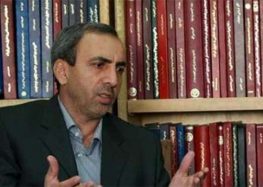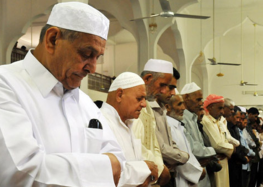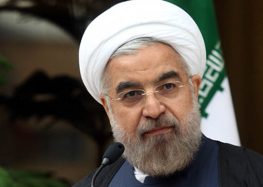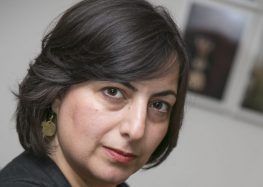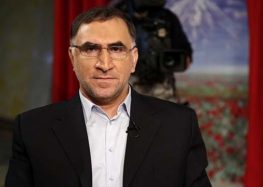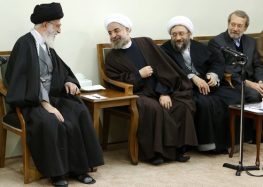Former MP Urges Iranian Government to “Trust” and Allow Sunnis to Run For President
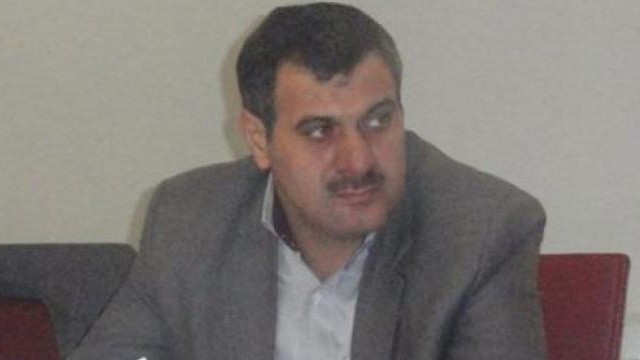
In the run-up to Iran’s May 19, 2017 presidential election, a Sunni Muslim former member of Parliament has renewed his call for members of his faith to be allowed to run for the country’s executive office.
Article 115 of Iran’s Constitution requires the president to be a member of the country’s “official religion,” which, according to Article 12, is Shia Islam. Sunni Muslims comprise an estimated 10 percent of the Shia-majority population.
“I and all the other political activists who have fought for the (1979) revolution object to Article 115,” Hasel Daseh, a Sunni Kurd who represented Sardasht and Piranshahr in the 6th Parliamentary session (2000-04), told CHRI.
“The ban denies Sunnis who have made sacrifices for this state. It leads to disappointment and discord,” he added. “National solidarity won’t get anywhere like this.”
Daseh said his call had previously received support from prominent Muslim officials, including former centrist President Akbar Hashemi Rafsanjani, and former reformist President Mohammad Khatami, but they proved unable to convince their counterparts.
“When I was in Parliament, [Bahaeddin] Adab (MP from Kurdistan Province) and I tried to raise the issue,” he said. “We had meetings with [then Parliament Speaker] Hashemi Rafsanjani, [then President] Khatami and [Ali] Younesi, who was the Intelligence Minister at the time. We had a plan with some suggestions and they all agreed with us.”
“Even though they shared our views, they were not able to present a practical way forward without the approval of higher officials,” he added.
Iran’s Constitution guarantees the rights of Sunni Muslim citizens in accordance with their religious practices.
According to Article 12: “Other Islamic (Sunni) schools, including the Hanafi, Shafi’i, Maliki, Hanbali, and Zaydi, are to be accorded full respect, and their followers are free to act in accordance with their own jurisprudence in performing their religious rites. These schools enjoy official status in matters pertaining to religious education, affairs of personal status (marriage, divorce, inheritance, and wills) and related litigation in courts of law. In regions of the country where Muslims following any one of these schools of jurisprudence constitute the majority, local regulations, within the bounds of the jurisdiction of local councils, are to be in accordance with the respective school of jurisprudence, without infringing upon the rights of the followers of other schools.”
Despite being officially recognized in the Constitution, Sunnis experience discrimination throughout Iran, even where there are no legal restrictions against official religious minorities.
Their participation in the public sector is restricted and they have reportedly been prevented from building their own mosques in the capital city of Tehran.
Improving Sunni Rights
Daseh explained to CHRI how the rights of Sunni citizens could be improved in Iran.
“First of all, the authorities have to trust Sunnis,” he said. “There’s no other alternative. Then they have put their trust in transparency and cooperation with all citizens.”
“Until then, lack of trust, harmony and cooperation will be the biggest threats to territorial integrity and domestic security,” he added.
In the 38 years since the establishment of the Islamic Republic, no Sunni has ever served in a ministerial position.
The only Sunni in President Hassan Rouhani’s cabinet is Deputy Oil Minister Emad Hosseini. Iran’s current ambassador to Vietnam and Cambodia is Saleh Adibi, the only Sunni in the diplomatic corps.
“Nowhere in the Constitution are Sunnis banned from becoming ambassadors, ministers or governors. The problem lies in the ruling establishment’s composition and ideology. They are very cynical and distrustful. Some of it is also due to lack of understanding,” said Daseh. “We object to this situation and hope that eminent (Shia) theologians in Qom will enter this discussion and find a solution.”
“If it’s good for Shias to become president, why not Sunnis?” he added. “This question will negatively impact future generations.”
“If discrimination and inequality leads to disillusion, it could cause other problems like what we are see in neighboring countries,” said the former MP, referring to sectarian violence. “I hope Iran will never go in that direction. Let’s be rational and solve this issue with compassion and the people will see results.”
There are currently 21 Sunni representatives in Iran’s Parliament, up from 19 in the previous session.
In 2016, Mohammad Ghasim Osmani, a reformist MP from Bukan, became the first Sunni to be elected to the legislature’s chairing committee.

